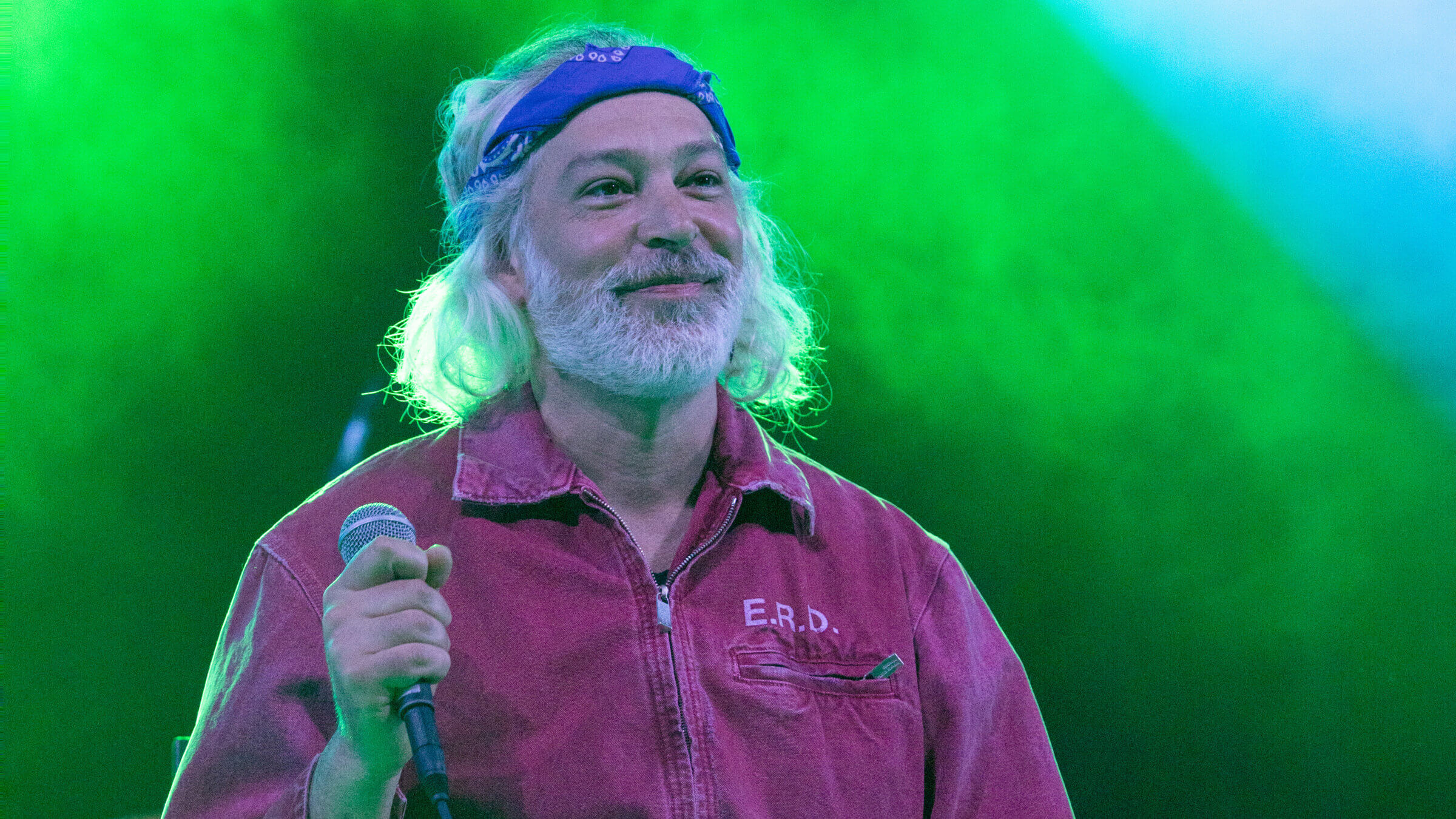Matisyahu tackles antisemitism in new music video filmed in Israel at massacre sites
‘Ascent,’ inspired by Biblical psalms, was shot at Nova festival site and ruined kibbutzim

Matisyahu in concert. Photo by Rick Kern/Getty Images
It won’t take the No. 1 spot away from Beyonce’s Cowboy Carter, but Matisyahu’s “Ascent,” which also dropped Friday, offers a powerful message about antisemitism and survival.
“You want to wear your Star [of David] out right now even in places in America, people are going to come at you,” Matisyahu said in an interview with Billboard. “For me the opposition does something to me in terms of my Jewish identity. It always has. That’s when I sink the most into it, when I feel opposition from being Jewish. A lot of Jews are like that.”
The singer, who has had to cope with several canceled shows on his U.S. tour, filmed a video for the song in Israel. It includes footage of him at the site of the Nova music festival massacre, making his way through ruined buildings on a kibbutz, and meeting with a survivor of Hamas’ Oct. 7 attacks. The video also includes historical black-and-white footage of concentration camp inmates, Hitler and other scenes from Jewish history.
The lyrics include: “I sense my fam under attack / We used to gettin’ shot in the back,” and “No one to blame but the Jew / Are you insane, this is not new / They been sayin’ this for years / Cry babies with their fears.”
The song’s title refers to the Bible’s Psalms of Ascents, which state: “Too long have I had my dwelling among those who hate peace.”
Matisyahu told Billboard that he wrote “Ascent” in response to antisemitic rhetoric from Ye (Kanye West) and others. Describing the lyrics as “empowering,” he said the song is different from his popular peace anthem, “One Day.”
“It’s a little bit more fierce in the sense of me calling people out on antisemitic thinking and a little bit about our history” he said.
Matisyahu lives in Rockland County, a New York suburb that is home to a large Hasidic population. Before his recent visit to Israel, he said he was “feeling really hopeless about what the future is going to look like for all of us. I went to Israel and it renewed my faith in humanity. It renewed my faith in God. I left with this feeling of light and I’ve been trying to take that and really put that into the music and into the shows.”
Several of the singer’s shows in U.S. cities have been canceled in recent weeks due to security issues and staff walkouts at clubs and concert halls. Matisyahu has blamed the cancellations on antisemitism, and said he’s now lined up “backup venues in every city in America. We will play our shows regardless.”
Despite these “tough situations,” he said his meetings with survivors of Oct. 7, Israeli soldiers and families of the hostages have given him “the strength to be myself and not be quiet about what’s happening right now.”
Correction: This story has been updated to correct the word “fame” to “fam” in one of the cited lyrics.























